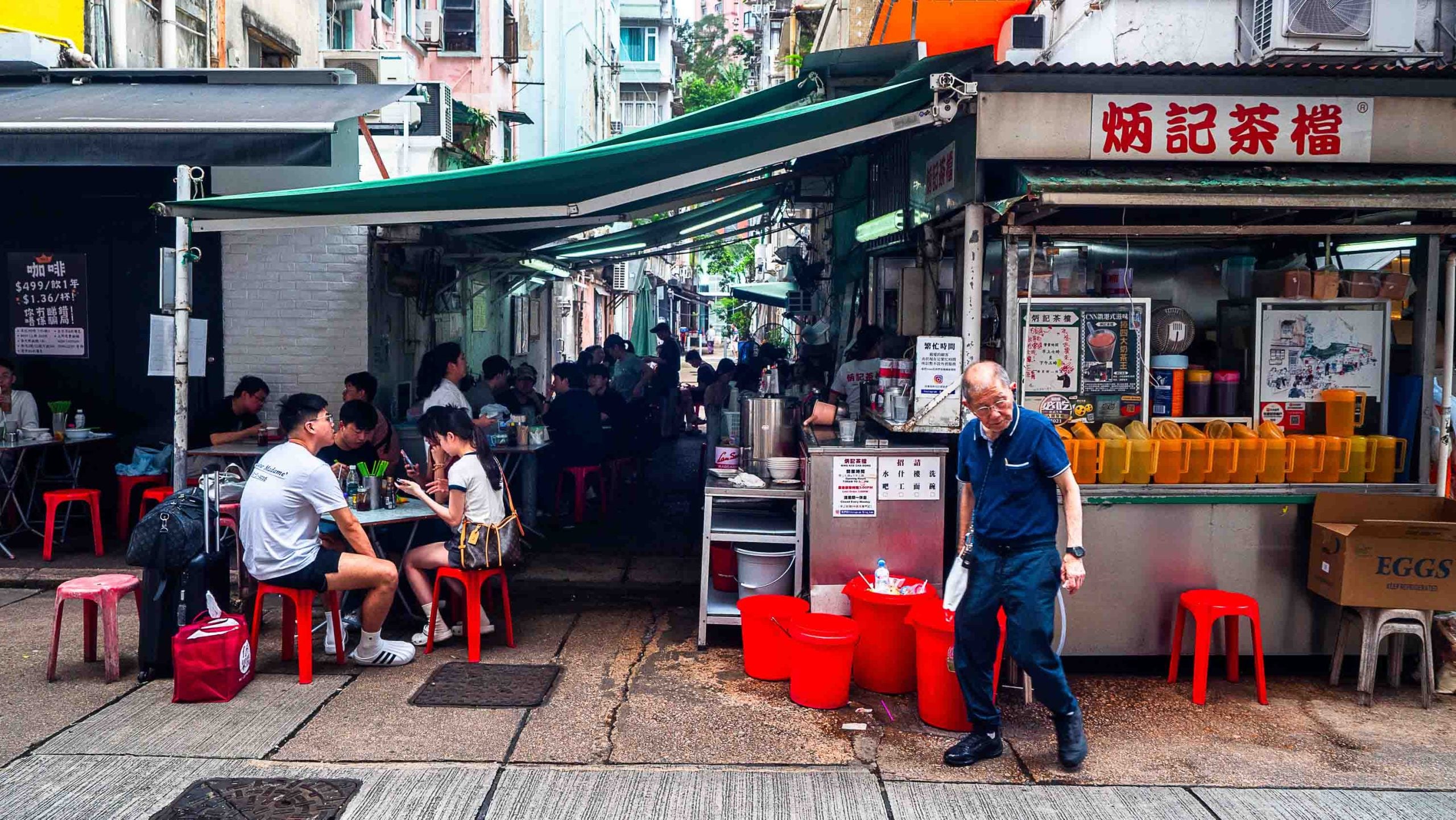China in the 1980s was picking itself up, dusting off several decades of fatigue, and preparing to enter a much-needed stage of economic restoration. That meant migrant workers from rural provinces rushing to major city centers in search of higher paying jobs, and landlords scrambling to provide housing for the influx of new residents (as well as cash in on the boom themselves). The mad dash left Shanghai with makeshift neighborhoods that housed thousands, but wouldn’t stand the test of time.
Laoximen is one of those neighborhoods. The name means old west gate, since the area used to hold the westernmost gate into old Shanghai. Laoximen’s single-story lane houses cluster around tight alleyways and busy pockets of residential life. There’s no central heating or cooling. Tenants share kitchen facilities and outhouses with archaic plumbing. Exposed wires twist up and around every corner, like vines left creeping for years.
And yet, most of Laoximen’s residents are quite content with their neighborhood. Li Qingfa is a relatively new resident, who sells assorted odds and ends out of his storefront in the community’s alley.


I’ve only lived here three years, but I like it. It’s lovely here, very natural. Shanghai is a big, cosmopolitan city, but here there’s a lot of human feeling. The development is going well – generally speaking, it’s very clean and organized. Knocking down the old neighborhoods and building new ones is good for the country’s development. As for finding another place, it won’t be too much trouble. In Shanghai, if you want to find a new place to live, you just find one.



As the development pushes forward, tenants are offered compensation for their trouble — generally, it’s enough to move into a clean, modern-style high rise with all the amenities. But for many of the neighborhood’s residents, especially the elderly, the comforts of modern living can’t replace the familiarity and day-to-day life of the community they call home. Another resident watches the foot traffic down the alley from her doorway.
I’ve been living here for 36 years. That’s not so long, ok! See that lady with the grey hair over there? She’s been here over 60 years. All the buildings here are old, but we don’t want to move to somewhere new. We’re familiar with life here, and we like it. It’s easy to get around, the subway is nearby, and it’s no problem to go shopping or go to Chenghuang Temple.
Now the government wants to renovate things, and of course we want to cooperate. But we don’t know where to go as a working family. The places we’ve found are all far out in the suburbs of Shanghai. If you became sick, it would be too long for the ambulance to reach you. There’s definitely been changes recently, just because of the development. But living in Laoximen is great. We hope they give us a single place nearby. Just a small, one-story house, nothing fancy. That’s all we hope for.




Elsewhere, two older men are of split opinion about the changes.
- I’ve lived here since I was a child. Over fifty years. But with the development, we’ll have to go. It’s surely a hassle. I’d prefer to stay here!
- Well, I’ve lived here over sixty years. I like Laoximen, but it’s no trouble to move somewhere else. I’m happy for the opportunity – I have a place to live, and now I have money. China is great!




An older man wearing glasses is also frustrated by the demolition.
A lot of people in the western part of the community have already moved out. We’ll be moving too before the summer. Of course, I do have feelings for this neighborhood. Spend this many years in a place and how could you not? And it’s convenient to go anywhere in the city. I’d prefer to keep living here, but the other apartments around here are all high rises, and so expensive.
But when his daughter steps in, it’s a different story altogether.
This place is too small. We’re very excited to move in to a new apartment complex, and we’re looking forward to the renovation of Laoximen. All the things here are so old, and so dirty. Just look at these wires hanging around everywhere. The government has their plans, they just want to make this area better. But we’re excited for our quality of life to improve.




On their porch, Li Kehua and her granddaughter chat and watch people pass by.
- Laoximen…it’s an old neighborhood. It’s got its own characteristics. Old houses, antique shops…
- And Chenghuang Temple!
- Yes, Chenghuang Temple…in the new developments, the apartments are nicer, more modern. But they don’t have this same culture. These towering high rises, that’s something we learned from the west. But we old folk don’t need high rise apartments. Just like this is fine. I won’t be able to continue living here — the move is mandatory. Tenants can choose to receive a new apartment or just the money itself. It’s a good policy. But if I could, I’d continue to live here.
- I like it here too. I have memories here.
- A girl so young! What memories do you have!
Li talked about some of the recent changes in their neighborhood, while her granddaughter nodded dutifully. But when asked how she felt about moving into a high rise with her grandmother:
“I’d say I’m excited.”

Photos by Justin Scholar


















